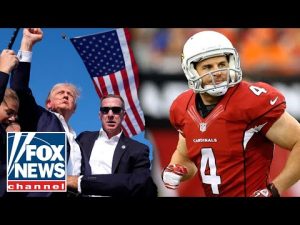In recent days, Congresswoman Ayanna Pressley has come under fire for her vocal support of individuals who have been arrested but have garnered little sympathy from the broader public. Her recent statements have raised eyebrows, especially regarding her concerns for non-citizens over the pressing needs of her actual constituents, many of whom face severe challenges in their own communities. With a focus seemingly misplaced, she asks the burning question: how can we help non-Americans more than those living in our own neighborhoods?
Pressley’s focus centers on a woman who has been arrested after having her visa revoked. This individual, implicated in various troubling activities, has been labeled a danger to the community according to a judge. Critics argue that Pressley’s bid to defend this person forgets one fundamental fact: constituents are those who vote and reside within a district, a status that this individual no longer holds. Valiantly advocating for someone without a stake in her community raises questions about her priorities, especially when actual citizens like 38-year-old Joshu Kulie have faced violence in their own streets — violence that seems to have slipped under Pressley’s radar.
Beyond her choice of focus, Pressley’s compassion appears selective. Many remember the January 6th incidents and the individuals who were arrested then, some even held in solitary confinement without being charged for long periods. Yet, during those tumultuous times, Pressley was conspicuously silent about those American citizens. If one were to measure her advocacy against a backdrop of sound logic and fairness, it becomes hard to reconcile her passionate pleas for a non-citizen with the muted response to fellow Americans suffering from the consequences of political strife.
To add fuel to the fire, David Hogg, a notable figure within Democratic circles, came to Pressley’s defense, despite the glaring inconsistencies. Couples like Hogg’s defense of a gang member supposedly not associated with notorious groups seem absurd when juxtaposed against the massive societal costs of crime and disorder. Critics ask — why rally for those whose actions have caused harm to communities while disregarding the voices of law-abiding citizens who simply seek peace and security for their families?
The irony does not end there. Observers were quick to recall that former President Obama faced little to no pushback when he deported millions of illegal immigrants during his presidency. In contrast, Trump’s firm stance against gang members led to visible outrage from the left. This juxtaposition highlights a recent trend of partisan advocacy that seems to splinter concerns along party lines rather than focusing on the well-being of all Americans, regardless of political affiliation.
Amidst ongoing debates about immigration and public safety, it’s essential to consider the voices of Americans first. After all, those elected to represent the public should prioritize the safety and interests of citizens above all else. As Pressley and her allies travel internationally, pleading for the release of individuals who have faced justice, one must wonder — when will they return their focus to the pressing needs at home? If lawmakers are truly committed to serving their constituents, perhaps they should start by advocating for the families and communities struggling right in their own backyards.







